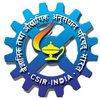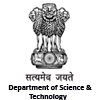|
|
 |
 |
 |
 |
||
| Significant Achievements | |
|
A novel CIMAP- Trichoderma Technology was developed by our department to manage phytonematode problems in medicinal and aromatic plants especially in menthol mint. A large number of mint farmers are benefiting from this technology as it generates income and provides employment opportunities. Large number of plant growth promoting rhizobacteria and endophytes have been isolated and tested their efficacy to enhance the yield of plant secondary metabolites and different plant growth parameters. These microbes significantly reduced the infestation of plant parasitic nematodes on various medicinal and aromatic plants (MAPs).. Our department is also engaged in another beneficial effect of microorganisms i.e. bioremediation. We are working on the theme of utilizing plant growth promoting rhizospheric microbes for remediating Cr (VI) toxicity and our lab has already characterized several such microbes. On antiageing front, our lab has discovered that phytomolecules from medicinal and aromatic plants have the ability to influence broad classes of physiological variables—metabolic rate and respiration, reproduction, sensory perception, stress responses and associated developmental state to extend lifespan thereby showing that lifespan is the collective outcome of many integrated processes. Our department is also engaged in age-dependent reactions of phytomolecules which relieve the stress and neurologic disorders under lifespan-altering genetic and environmental conditions. Recently, our lab has also taken steps towards the use of microbes for modulation of natural molecules to enhance their anti-ageing activity. Presently our lab is also engaged to scrutinize the possible impact of vitamins on lifespan. We observed that vitamins mediate lifespan in worms, much like calorie restriction does in animals. This finding could pave the way for developing supplements to benefit humans. Since delayed aging is better investment than cancer therefore we also employ computational strategies based on bioinformatics and systems biology approaches to understand how ageing is correlated with cancer. As the literature addressing this issue is not adequate therefore the implementation of computational study could reveal new common potential targets of ageing and cancer thereby raising new prospective to improve the discovery of natural molecules with therapeutic potential for both ageing and cancer. Moreover, our lab is also interested to monitor environmental toxicity in a quick, simple, and inexpensive manner by using C. elegans as a biosensor. In our recent study, we examined the toxicity effects of Cr (VI) on stress-related gene expression and morphometric parameters of C. elegans to identify genetic markers for environmental pollution. We found that C. elegans has the potential to act as an efficient biosensor for figuring out the precise route of Cr (VI)-induced environmental toxicity. We believe identifying the aforesaid dimensions are required to properly define and contextualize the molecular mechanisms that ageing research is seeking. Our work is largely supported by the CSIR, DBT, DST, NMPB and UPCST funding agencies. |
|
| Reserach Facilities | |
|
|
|
| Recent Research | |
|
The research goal of the department is to understand microbes, MAPs, and their interactions in the environment in order to provide effective approaches by which plant disease can be controlled and beneficial interactions can be maximized. The department carries out well-balanced research programs ranging from fundamental studies of host-parasite relationship to more applied studies of disease control on important MAPs including mints, opium poppy, Kalmegh, Ashvagandha, geranium, aromatic grasses etc. It has a strong research history in the field of control of viral, fungal and bacterial diseases. It also has extension programs dedicated towards educating the growers and farmers regarding management of plant health by using the latest techniques and healthy planting materials. Besides, it offers numerous graduate and post graduate level courses / trainings in plant pathology for students. Currently the department is working on the epidemiology and control of various fungal diseases with special emphasis on sudden death syndrome (SDS), anthracnose, leaf spots and wilts. Current research is investigating the effects of rotation, environmental factors influencing the disease and disease development or yield, cultivar resistance, and use of appropriate fungicide for control measure. More efforts are also given to manage the diseases though natural resources (essential oil etc). The department also focuses on the ecology of soil borne plant pathogens including Rhizoctonia solani, Thielaviopsis basicola, and Pythium spp., on the influence of soil physical factors and sustainable agricultural practices. The importance of chronic diseases on seedling development and yield is also being investigated. Currently workers are also exploring possibilities to manage plant diseases through eco-friendly approaches like using bio-inoculants. Plant natural compounds and essential oils, are being tried as biofertilizers and biocontrol agents, respectively. Several new virus complexes have emerged in the last decade causing detrimental losses. For example, begomovirus associated with leaf curl disease of mint, kalmegh, basil etc. One of the goals of the department’s research is to understand the epidemiology of virus complexes and implement cultural and pest management strategies to minimize disease impact. Ultimately, it is looking into the development of an IPM program that will minimize chemical input and yield losses. There is also an approach based on reverse genetics, whereby viruses are used as vectors for RNA interference. The goal is also to identify and characterize genes involved in disease development and resistance in collaboration with breeders. This will lead to development of techniques that will allow identification of genes for the improvement of the crop yield as well as health. Using large scale sequencing and custom-made bioinformatics pipelines, enables detection of viruses / fungi known to infect a crop but even more importantly new viruses that are associated with diseases of unknown etiology. The role of abiotic and biotic stresses on the secondary metabolite production by infected MAPs is also under investigation. Past experience indicates that phytoplasma is emerging as a new threat to MAPs and causing a tremendous loss of biomass. Some new phytoplasmas from MAPs have been isolated and characterized. The department has successfully completed several sponsored projects of CSIR, DBT, UPCST and UP Biodiversity Board. |
|
| Significant Achievements | |
|
For over 30 years, researchers working at Plant Pathology Department, CSIR-CIMAP have conducted research to improve the quality of life for MAP growers, farmers and economy of the country. Through their continued efforts, they have identified important / serious diseases of MAPs and the associated pathogens. These are novel findings having wider implications for the plant science community. • Disease-associated pathogen(s) (bacteria, fungi, viruses, phytoplasma) were isolated, maintained properly and characterized through conventional and molecular means. These findings helped in the management of the diseases and prevented economic losses. • During screening many beneficial microorganisms, mostly Pseudomonas and Bacillus sp. were identified and documented as growth promoters with strong activity in the management of many diseases caused by fungal pathogens. Some of the bacteria were also found to be useful in the management of heavy metals (rhizoremediation). •A large germplasm has been screened against severe pathogens in collaboration with the breeders towards development of disease-resistant variety of opium poppy •The department has more than 10 granted US patents related to pathogens •It keeps in continuous touch with MAP growing farmers for solving their problems with suitable indigenous solutions. /span> •Recently an initiative has been undertaken towards management of fungal diseases/pathogens using nanoparticle. •A simple, eco-friendly and cost effective protein based dip stick diagnostic has been developed for the detection of begomovirus infection in menthol mint. •Ongoing activities of the department are mostly sponsored by the CSIR, DBT, UPCST and UPBDB funding agencies.
|
|